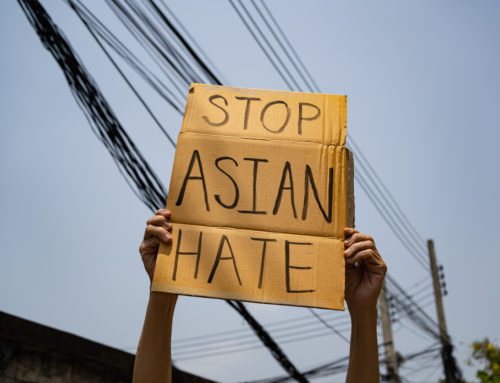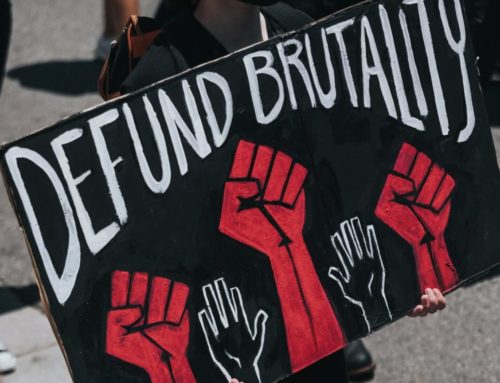Phillip Agnew, Executive Director, Dream Defenders
December 5, 2014
Originally published on Comment is Free, The Guardian.
On Monday, representatives from a community in active struggle against state sanctioned killing, violence and repression met with the President of the United States of America. Not “civil rights leaders”, not “activists”, not “spokespeople”. This wasn’t a group of “Beltway Blacks”, this wasn’t a delegation of “respectable negroes”, this wasn’t an assemblage of “yes men and women”.
“We” were from Missouri (Ashley Yates, Brittany Packnett, T Dubb-O, Rasheen Aldridge); Ohio (James Hayes); New York (Jose Lopez); and Florida (me). It all happened quickly and, yes, we all were skeptical.
We all knew that the White House stood to benefit more from this meeting than we did. We knew that our movement families would fear the almighty co-opt and a political press photo-op. We have been underestimated at every juncture, sometimes from all sides. But this was an invitation that you accept – period.
The invitation was extended with a clear goal: the president wanted to hear about what was going on around the country. We answered that call with clarity and brutal honesty.
No amount of rehearsal or choreography can truly prepare you for the tense moments standing outside the door of the Oval Office. Nerves raced through my body. I looked at the faces in our delegation. If anxiety was present in any of them, it didn’t show.
The door opened, we sat down, exchanged cordialities, and went to work.
Brittany, director of St Louis Teach for America, opened and recounted a speech she delivered to her students, on the eighth day of August, imploring them to stand tall and be affirmed leaders only to find that, after the ninth day of August, none of that mattered in the eyes of the state.
“The first time I was teargassed was on the streets of St Louis with an eighth grader,” Brittany said.
Rasheen, who at 20 years old is the youngest member of the Ferguson Commission, told the president that his fight didn’t begin on the day Michael Brown died – that he had been committed to the struggle of poor people long before the state killed another unarmed black man.
T Dubb-O, the artist, activist and community voice, laid out with pain and poetic prose how life in St Louis isn’t life but an existence of survival, where none of the “hope” and “progress” of which the president spoke is evident at all.
“I’m tired of rapping about pain and survival,” T Dubb-O said.
José Lopez spoke of a 10-year-old in New York, one of the over 17,000 members of Make the Road New York, who – at a school rally in support of the police – refused to celebrate, who spoke about the fear that they put in her heart. This 10-year-old girl now faces expulsion.
James Hayes came from Ohio to the Oval Office, and he brought John Crawford and Tamir Rice along with him – delivering their eulogy in his introduction.
I brought my mother, my father and my four brothers: Jordan Davis, Israel Hernandez, West Englewood and Trayvon Martin.
Ashley brought home our tale of two countries – of the “other America” – telling the president that women – women like Sasha and Malia – are standing on the front lines, facing the full fury of an oppressive state.
In the streets, Ashley said, “Silence is betrayal.”
On Monday, representatives from a community in active struggle against state sanctioned killing, violence and repression met with the President of the United States of America. Not “civil rights leaders”, not “activists”, not “spokespeople”. This wasn’t a group of “Beltway Blacks”, this wasn’t a delegation of “respectable negroes”, this wasn’t an assemblage of “yes men and women”.
“We” were from Missouri (Ashley Yates, Brittany Packnett, T Dubb-O, Rasheen Aldridge); Ohio (James Hayes); New York (Jose Lopez); and Florida (me). It all happened quickly and, yes, we all were skeptical.
We all knew that the White House stood to benefit more from this meeting than we did. We knew that our movement families would fear the almighty co-opt and a political press photo-op. We have been underestimated at every juncture, sometimes from all sides. But this was an invitation that you accept – period.
The invitation was extended with a clear goal: the president wanted to hear about what was going on around the country. We answered that call with clarity and brutal honesty.
No amount of rehearsal or choreography can truly prepare you for the tense moments standing outside the door of the Oval Office. Nerves raced through my body. I looked at the faces in our delegation. If anxiety was present in any of them, it didn’t show.
The door opened, we sat down, exchanged cordialities, and went to work.
Brittany, director of St Louis Teach for America, opened and recounted a speech she delivered to her students, on the eighth day of August, imploring them to stand tall and be affirmed leaders only to find that, after the ninth day of August, none of that mattered in the eyes of the state.
“The first time I was teargassed was on the streets of St Louis with an eighth grader,” Brittany said.
Rasheen, who at 20 years old is the youngest member of the Ferguson Commission, told the president that his fight didn’t begin on the day Michael Brown died – that he had been committed to the struggle of poor people long before the state killed another unarmed black man.
T Dubb-O, the artist, activist and community voice, laid out with pain and poetic prose how life in St Louis isn’t life but an existence of survival, where none of the “hope” and “progress” of which the president spoke is evident at all.
“I’m tired of rapping about pain and survival,” T Dubb-O said.
José Lopez spoke of a 10-year-old in New York, one of the over 17,000 members of Make the Road New York, who – at a school rally in support of the police – refused to celebrate, who spoke about the fear that they put in her heart. This 10-year-old girl now faces expulsion.
James Hayes came from Ohio to the Oval Office, and he brought John Crawford and Tamir Rice along with him – delivering their eulogy in his introduction.
I brought my mother, my father and my four brothers: Jordan Davis, Israel Hernandez, West Englewood and Trayvon Martin.
Ashley brought home our tale of two countries – of the “other America” – telling the president that women – women like Sasha and Malia – are standing on the front lines, facing the full fury of an oppressive state.
In the streets, Ashley said, “Silence is betrayal.”
We told President Obama that we were not the “People’s Spokespeople”. We told him that we had neither the power, positions, nor desires to stop the eruptions in the streets and that they would continue until a radical change happened in this country. We told him that we had no faith in anything, church or state. We told him that the country was on the brink and that nothing short of major capitulations at all levels of the government to the demands of the people could prevent it. Straight talk like that.
We asked for the president to utilize his pulpit to spark the governmental culture shift that this movement calls for. We told him to end the Department of Defense’s 1033 Program, to end federal funding to police departments with histories of discrimination, harassment and murder. We beseeched President Obama to invest in community-based alternatives to policing and incarceration and challenged him on the lack of data on the state’s systematic and underreported killings of unarmed black and Latino people.
He listened. Intently. He responded passionately. He agreed with many of our points and offered his take on the current State of the Union. He presented the reforms that have dominated the discourse in the hours after our meeting. He cautioned us against demanding too big and stressed gradualism. He counseled us that the wheels of progress turn sluggishly and reminded us of the progress that got us to this point: a room full of black folk in the Oval Office. He asked for our help, harkening back to his organizing days when, in the streets of Chicago, the cries of the people shifted the landscape. We debated on the power of the vote and the lack of faith in the Democratic party.
We did not budge.
Only time will tell whether the stories of Renisha, Tamir, Mike, Eric, John, Aiyanaand others will shape the course of history in policy, practice or culture. No one knows whether our “impactful” meeting with this nation’s first black president will yield any change that people in Ferguson or Flint or Chicago can feel. It is yet to be seen, though one can hypothesize, what will come of the President’s Task Force on 21st Century Policing.
We walked out of that meeting unbought and unbowed. We held no punches. There was no code-switching or bootlicking; no concessions, politicking or posturing. The movement got this meeting. Unrest earned this invite, and we can’t stop.
If we don’t get what we came for, we will shut it down. President Obama knows that and we know it. No meeting can stop that.



